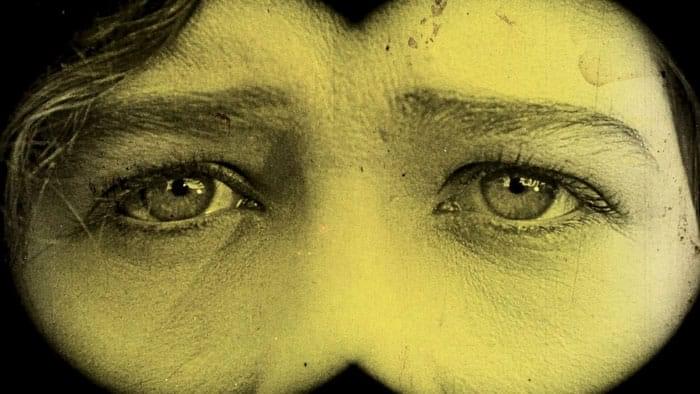
I’m not the first person to point this out, but it bears repeating here: despite what you may read around the Internet, the only real resemblance between “Hero” and “Rashomon” lies in the fact that both are Asian productions. (I say “Asian” because, of course, “Hero” is a Chinese film while “Rashomon” was Japanese in origin.) While both films address the slippery nature of truth, “Hero” revolves around different retellings of the same story from the points-of-view of people who weren’t there for some or all of it, while “Rashomon” offers multiple retellings of an event by people who experienced the whole thing.
In terms of structure (and I’m not the first to realize this either), “Hero” actually bears a striking resemblance to “The Usual Suspects.” Both feature the main character enduring a grilling by an authority figure, his story morphing until the truth is revealed. Of course, the would-be emperor in “Hero” is a bit smarter than the detectives in “The Usual Suspects,” but the basic idea is the same.
When it comes to visual flair, however, “Hero” achieves a dramatic style I’ve seen in few films, including “Crouching Tiger, Hidden Dragon,” the other movie to which this one often gets compared. The filmmakers conjured a color palette that changes with each retelling of previous events, moving from striking red tones to cool blue ones to, finally, a muted scheme that brings us as close to ever-elusive truth as this movie will allow. Many of the shots are gorgeous works of art that will likely make you pause the film repeatedly to admire them.
Like “Crouching Tiger,” “Hero” is a “wire-fu” film that gives its participants superheroic abilities. They can launch themselves high in the air or jump straight across a wide expanse toward an opponent. They dodge blows with moves that are physically impossible and even summon something akin to telekinetic powers as they swirl a storm of golden autumn leaves around an opponent or swipe aside a literal hailstorm of arrows. While this movie bases its story on real history, it adds an infusion of mythological elements that make the events larger than life.
“Hero” concerns itself with Nameless, a nondescript warrior who comes to see the King of Qin and informs him that he has vanquished three assassins. The King has been fighting with his neighbors, trying to unite six kingdoms into one (a task he eventually accomplished; he became China’s first emperor and built the Great Wall), and the deaths of these assassins would help his cause greatly. He becomes suspicious, however, and Nameless’ version of the events that led him into the King’s chambers gives way to the King’s rendition and, eventually, the truth.
Some have decried “Hero” as tantamount to celebrating Chinese nationalism and sweeping the wrongs committed by its totalitarian government under the rug. However, I don’t think director Zhang Yimou’s vision is as black-and-white as that—I think he’s merely presenting us with a mythological retelling of history and leaving us to decide whether the unification of China under the King of Qin’s brutal warmongering was worth the price paid in human lives.
A unified country is a stronger one, but the question becomes: “Unified under whose vision?” There’s a double-edged sword at the heart of this story, a dichotomy that Yimou presents to us and lets us wrestle with on our own, rather than telling us what to think. That’s the hallmark of great movies, and “Hero” is certainly among the best of 2004, if not the past several years.
It’s too bad, then, that Miramax Home Entertainment released this film with a weak set of extras. Given the subject matter and the controversy it has caused, I would have loved to listen to a director’s commentary or seen an in-depth documentary. Alas, you won’t find either of those on this disc. You will find three main extras, starting with “Hero Defined,” an EPK-style featurette that was shot during the making of the film and which skims over its surface, never stopping to dig into a subject more deeply.
“Inside the Action: A Conversation with Quentin Tarantino and Jet Li” is a shorter piece that deals with Tarantino’s interest in the film, which helped it finally find American distribution last year even though it was made in 2002. Of course, Tarantino being a guy who loves kick-butt fighting, he focuses more on that than anything else, which is a shame since “Hero” really isn’t just a bunch of set pieces with lame scenes inserted to set them up, like the pizza delivery guy and the woman without enough money for a tip in a porno. There’s real history behind this movie, and I would have liked to see Tarantino also get in a few words with Yimou, rather than tout his “Kill Bill” films and go off into tangents talking about Li’s other work.
If you care about storyboard-to-film comparisons, you’ll also find four of them on this disc. Too bad Miramax couldn’t slap an extra disc in here and fill it with a nice long documentary that addresses the historical perspective as well as the kick-butt fighting stuff and the “How’d they do that?” bits. Oh well. Given their double-dipping track record with “Kill Bill,” maybe they’re simply watching the sales numbers of this one before they foist a Special Edition on the marketplace. Me, I wouldn’t have minded waiting a couple months and getting a worthwhile release in the first place.
